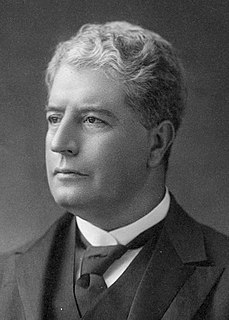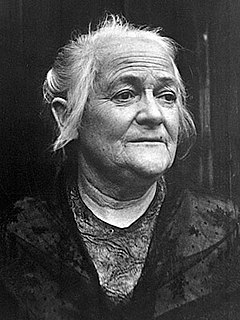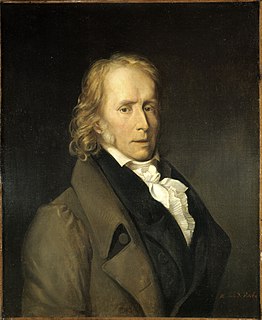A Quote by Edmund Barton
A State which has universal suffrage and a wide extension of the jury franchise, must qualify the people by education to rightly exercise the great powers with which they are invested.
Related Quotes
The socialist parties of all countries are duty bound to fight energetically for the implementation of universal women's suffrage which is to be vigorously advocated both by agitation and by parliamentary means. When a battle for suffrage is conducted, it should only be conducted according to socialist principles, and therefore with the demand of universal suffrage for women and men.
The error of Socrates must be attributed to the false notion of unity from which he starts. Unity there should be, both of the family and of the state, but in some respects only. For there is a point at which a state may attain such a degree of unity as to be no longer a state, or at which, without actually ceasing to exist, it will become an inferior state, like harmony passing into unison, or rhythm which has been reduced to a single foot. The state, as I was saying, is a plurality which should be united and made into a community by education
All the worth which the human being possesses all spiritual reality, he possesses only through the State... For Truth is the Unity of the universal and subjective Will; and the Universal is to be found in the State, in its laws, its universal and rational arrangements. The State is the Divine Idea as it exists on Earth. We have in it, therefore, the object of History in a more definite shape than before; that in which Freedom obtains objectivity...
The people who, in order to enjoy the liberty which suites them, resort to the representative system, must exercise an active and constant surveillance over their representatives, and reserve for themselves...the right to discard them if they betray their trust, and to revoke the powers which them might have abused.
A constitution, in the American sense of the word, is a written instrument by which the fundamental powers of the government are established, limited, and defined, and by which these powers are distributed among several departments, for their more safe and useful exercise, for the benefit of the body politic.
it was the United States which first established general suffrage for men upon the two principles that 'taxation without representation is tyranny' and that governments to be just should 'derive their consent from the governed.' The unanswerable logic of these two principles is responsible for the extension of suffrage to men and women the world over. In the United States, however, women are still taxed without 'representation' and still live under a government to which they have given no 'consent.
The powers delegated by the proposed Constitution to the federal government are few and defined. Those which are to remain in the State governments are numerous and indefinite. The former will be exercised principally on external objects, as war, peace, negotiation and foreign commerce. ... The powers reserved to the several States will extend to all the objects which in the ordinary course of affairs, concern the lives and liberties, and properties of the people, and the internal order, improvement and prosperity of the State.
I see,... and with the deepest affliction, the rapid strides with which the federal branch of our government is advancing towards the usurpation of all the rights reserved to the States, and the consolidation in itself of all powers, foreign and domestic; and that, too, by constructions which, if legitimate, leave no limits to their power... It is but too evident that the three ruling branches of [the Federal government] are in combination to strip their colleagues, the State authorities, of the powers reserved by them, and to exercise themselves all functions foreign and domestic.
The Noonday Demon explores the subterranean realms of an illness which is on the point of becoming endemic, and which more than anything else mirrors the present state of our civilization and its profound discontents. As wide-ranging as it is incisive, this astonishing work is a testimony both to the muted suffering of millions and to the great courage it must have taken the author to set his mind against it.


































